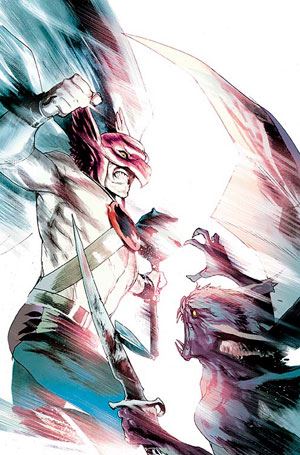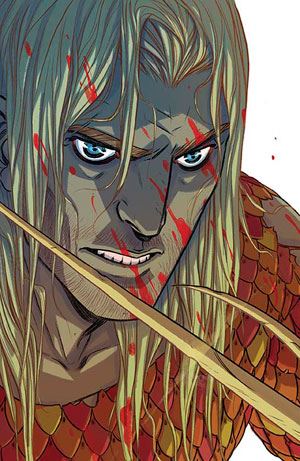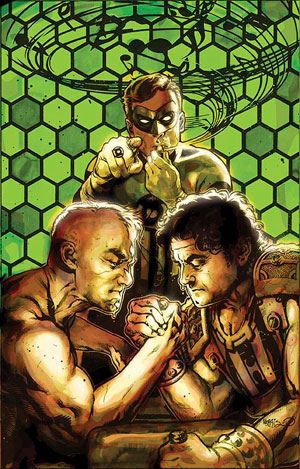DC Comics Should Revive Zuda Comics
By Hervé St-Louis
February 17, 2015 - 21:07
 |
For example, DC Comics’ V for Vendetta, created by Alan Moore and David Lloyd characterizes the Occupy movement and the fight against the privilege of the one percent class. The Guy Fawkes mask Lloyd designed for V for Vendetta is the new face of resistance in societal conflicts in the information society. It is of course ironic that a property owned by one of the world’s largest media conglomerate is the face of resistance to power. DC Comics and parent company Warner Brothers may mind a bit, but they certainly appreciate the revenues generated by the sale of the Guy Fawkes masks.
Regular printed comics and digital comics, available on tablets and readers through apps contain a lot of contents that is easily reused by viewers. The business objectives of comic book publishers is not to create fodder for next month’s meme. However, how readers consume culture has changed dramatically since 2007. Comic book readers, as other Internet users, consume bit-size amounts of contents continually through pervasive and ubiquitous computing. They are always plugged on the Internet.
 |
The fetish and primacy of print obscure the opportunities of generating comic book contents for an audience that is eager for more comics. This audience’s demographic is not the similar one that buys print and digital comics. This audience does not go to comic book stores. It seeks all its contents online. Many resources exist for Web comics but I believe that Zuda marketed by DC Comics would help realize the potential of this nascent industry.
Zuda has very little to do to succeed. It needs to be a place where new comics can be read outside of the constraints of digital and print. It needs to be a place where comics are original and accessible. What if DC Comics had spearheaded its convergence event online? What if it tested its new comics offering with stories about Batman has the headliner supporting artists experimenting with other comics properties?
 |
Both the digital and parent arm of DC Comics could then choose from the most original creators’ work. Issues of copyrights would easily be settled. If the comics sell, creators would get part of the revenue as payment. Meanwhile, they could not claim any copyrights on DC properties like the Creeper. The original material published through Zuda could remain the copyright of creators. All DC Comics would need to secure are the first rights to publish and the first right to film or game adaptation. I specifically mention the first right. If an author got an offer by a third party, DC Comics would have the right to say yes first. If DC Comics said no, the creator would be free to go elsewhere.
The real creativity in comics is in Web comics. Creators of all levels and skills toil away at new comics in complete obscurity and sometimes with full success. There is a lot of good material around but it is very difficult to find and to entice non-Web comic readers to pay attention too. How users consume contents also means that short strips installments are perfect for mobile readers and busy desktop users. Zuda really tried to create something years ago but it was ahead of its time. Will DC Comics be bold again?
Related Articles:
DC Comics Should Revive Zuda Comics
DC's Zuda Artist Tom Kelly to Appear in the New Indie Comics Magazine
Zuda Available Through Comixology and PlayStation®Network Digital Comics
Drew Rausch Announces His Zuda Comics Entry
Zuda's November Competition
Zuda Comics
Zudacomics.com Opens March 2008 Competiton
Zuda Comics Opens Feb. 2008 Competition
Zudacomics.com Announces Entries for the First Zuda Contest of 2008
